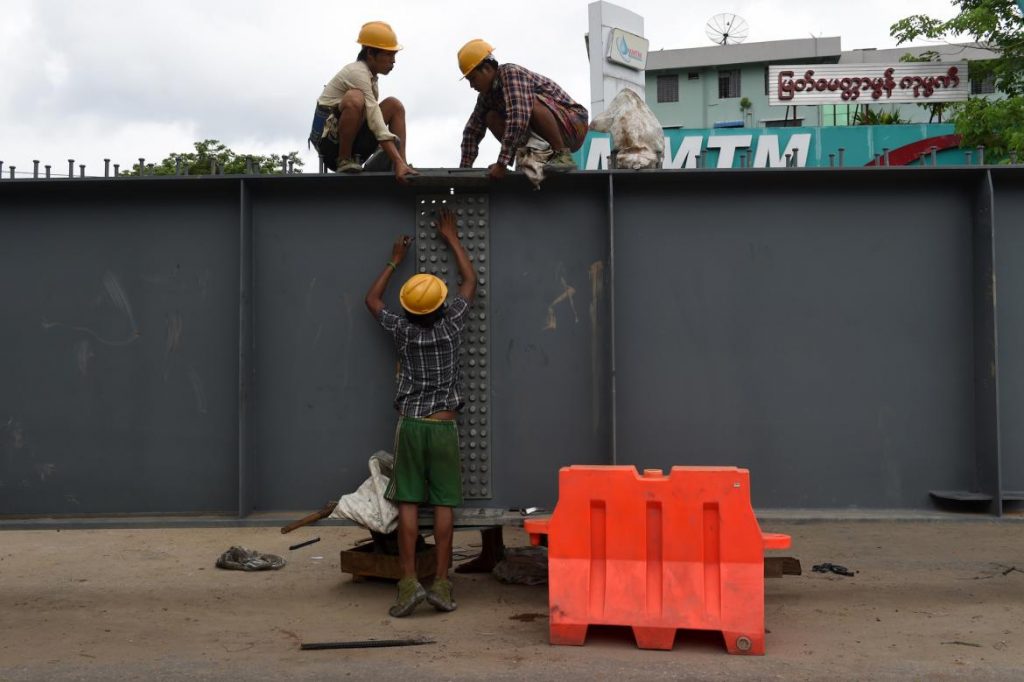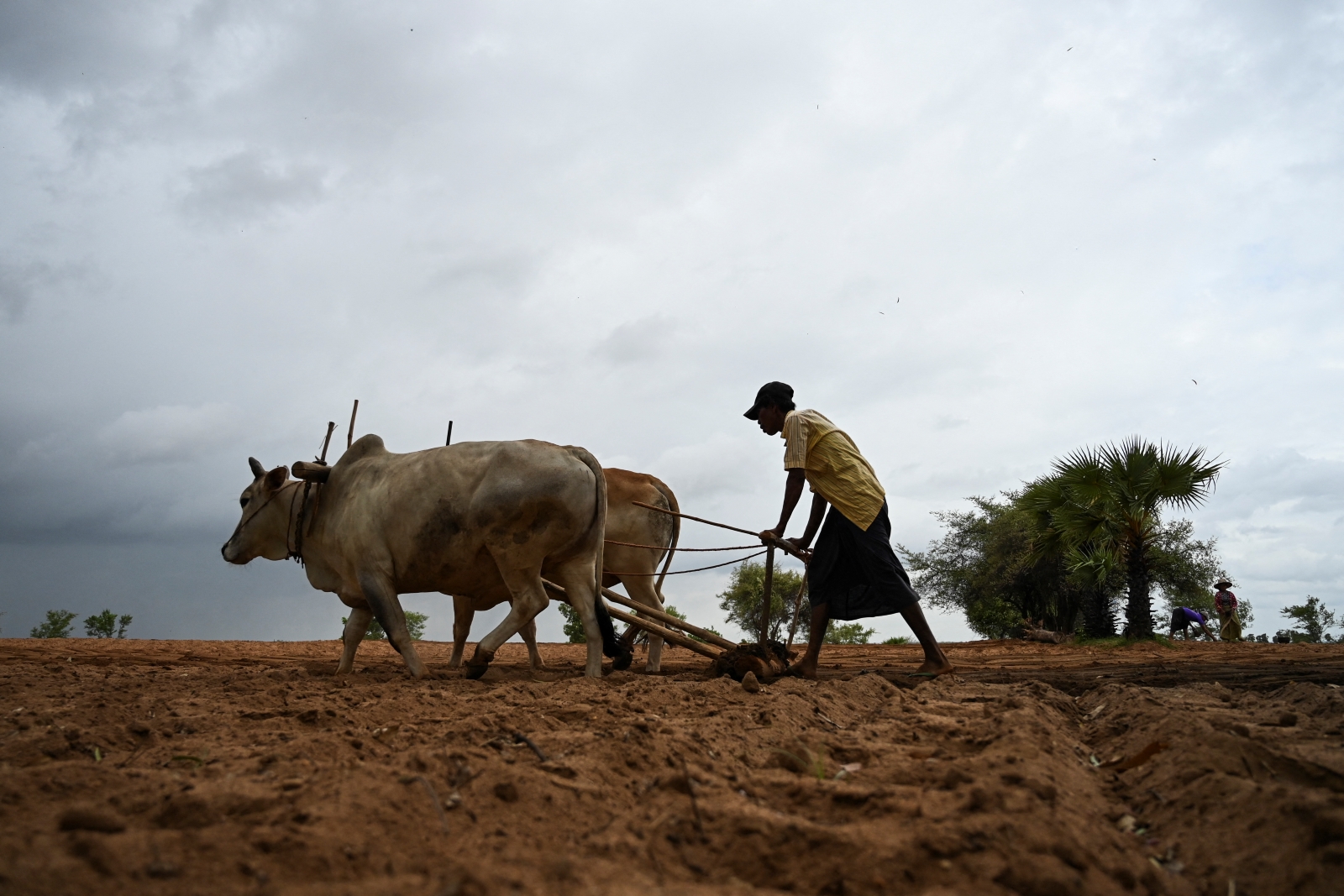By KYAW PHONE KYAW & THOMAS KEAN | FRONTIER
YANGON — After a months-long wait, the National League for Democracy government is set to reveal the first details of its planned economic reforms to be implemented over the next five years.
The date for the policy launch has not yet been confirmed, with sources saying it would likely be July 27 or 29. One economic adviser to the party said the “final details” were still being prepared as Frontier approached deadline, with officials debating how much of the policy to make public.
The launch would follow an economic forum in Nay Pyi Taw on July 26 that has been co-organised by the Renaissance Institute, an NLD-linked think-tank focused on economic and social reform, and the US Agency for International Development.
“I can’t comment before the policy is launched but I can say it will be released in Nay Pyi Taw on July 27,” another NLD economic adviser, U Hanthar Myint, told Frontier on July 22.
Support more independent journalism like this. Sign up to be a Frontier member.
Deputy Minister for Planning and Finance U Maung Maung Win said the launch date could be postponed until July 29, but it would definitely be released by the end of the month.
The policy’s planned release comes four months after the new government took office, and almost nine months after the NLD’s election victory.
The slow release of the government’s economic plans has generated frustration and concern among local and foreign businesses, including both those already operating in Myanmar and prospective investors.
In the meantime, the government and parliament have made several decisions that have created further economic uncertainty, including cancelling two Myanmar Investment Commission-approved projects and suspending high-rise projects in Yangon that were already under construction.
There was also a lengthy and unexplained delay in forming the new Myanmar Investment Commission, which resulted in a backlog of more than 100 projects totalling US$2.3 billion. The 11-member commission was re-constituted on June 8, but has so far approved only eight projects.
Despite this, sources within the NLD’s economic advisory team believe the criticisms have been largely unfair. In particular, they overlook the lack of data made available to the government on the state of the economy, and the many contracts, permits and projects awarded in the final months of the previous government. Both have significantly complicated the process, they say.
One adviser to the NLD refuted suggestions the party had not properly prepared for taking government. The party’s economic team had developed detailed economic plans over the past year to implement once the party formed government, laying out targets for the first 180 days, two years and five years, the adviser said.
The criticism appears to have stung the government into action, however.
“The purpose [of the launch] is very much to signal that the government is open to investment and to business,” said Mr Sean Turnell, an associate professor of economics at Sydney’s Macquarie University and an adviser to the NLD. “The policy is consistent with [the election] manifesto, but with a particular focus on foreign investment and in recognising the importance of enabling infrastructure – not least, reliable electricity supplies.”
Erin Murphy, founder and principal of Inle Advisory Group, said patience was “increasingly growing thin” among the international and local business communities, which are anxiously waiting for clarity from the government.
“Businesses will want a signal from the NLD that they are taking economic policy – and investor concerns – seriously and aren’t single-issue focused,” she said.
They will also look for clearer signals on the government’s economic priorities, as well as “potential landmines” that could result in projects being cancelled or suspended, she said.
“Particularly, businesses will want to get a greater understanding of why projects have been suspended or cancelled, what exact criteria the NLD is looking for in tender or MIC applications, as well as assurances that project approvals, permit allocations, contracts will be honoured, and goalposts won’t be moved.”
Senior government and party officials were last week unwilling to give any further details about the policy’s contents, though. They could not even confirm whether a press conference would be held together with the launch.
Maung Maung Win said he had been told not to discuss the policy publicly, and no copies would be given to the media before the launch.
U Tun Tun Naing, permanent secretary of Ministry of Planning and Finance, said the cabinet was taking responsibility for the launch.
“It’s not from the ministry level, so I can’t say anything in particular about it,” he said.
Daw Khin San Hlaing, head of the Pyithu Hluttaw Banking and Finance Development Committee, claimed to also be in the dark about the policy’s contents, or when it will be launched.
Both Khin San Hlaing and Hanthar Myint are members of the National Economic Co-ordination Committee (NECC), which was formed by President U Htin Kyaw on June 16 to lead the economic reform process.
The 11-member committee is headed by Minister for Planning and Finance U Kyaw Win. It also includes Minister for Commerce U Than Myint; deputy governors of the Central Bank of Myanmar U Set Aung and U Soe Min; Pyithu Hluttaw Commerce and Finance Committee chair U Khin Aye; and Financial Regulatory Department director general Daw Sandar Oo.
Three outside experts are also on the committee: U Myo Myint, a former deputy director general of the Ministry of National Planning; U Soe Win, a partner at Deloitte Myanmar; and U Bo Bo Nge, head of research and risk management at Kanbawza Bank.
Khin San Hlaing said an NECC meeting would be held on July 27.
However, she was unsure if the economic policy would be launched the same day.
“U Kyaw Win, the minister for planning and finance, drew the policy together with experts,” Khin San Hlaing said. “Even I’ll only know what’s in it on this day [when it is launched]. That’s why I have no comment yet.”







